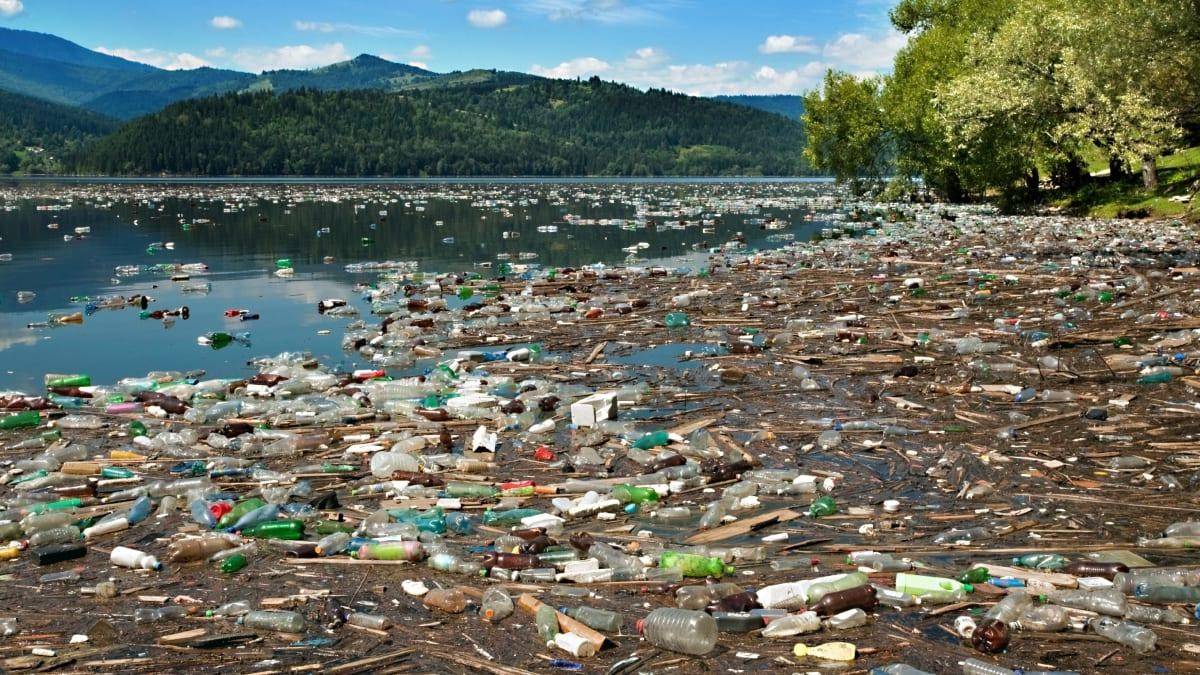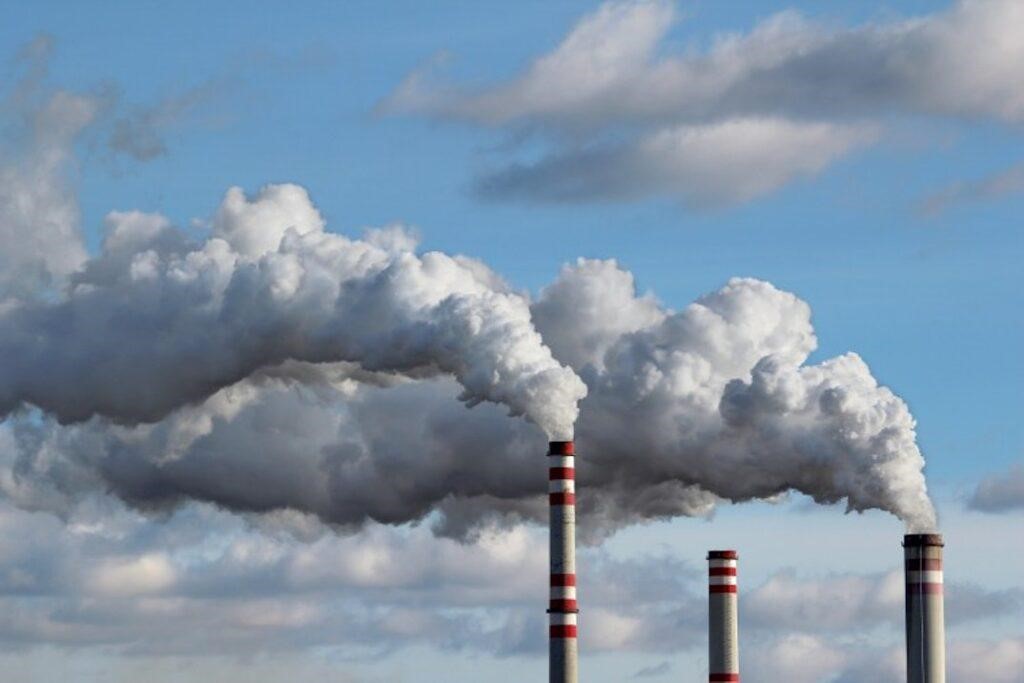
The Shocking Truth About Pollution and Toxicity in Society
Pollution and toxicity have become two of the most pressing issues facing our society today. Every year, millions of people are exposed to harmful pollutants and toxins that can cause serious health problems. The sources of pollution and toxicity are many and varied, ranging from industrial processes to household products.
Air pollution from factories, cars, and other sources is a major contributor to respiratory problems and other illnesses. Water pollution from agricultural runoff and industrial waste can lead to the contamination of drinking water and aquatic ecosystems. Chemicals in consumer products, such as cleaning supplies and cosmetics, have been linked to cancer, reproductive problems, and other health issues.
The effects of pollution and toxicity are not evenly distributed across society. Low-income communities and communities of colour are often disproportionately affected by pollution and toxic exposure. These communities may be located near industrial facilities or toxic waste sites, or they may lack access to clean air and water. In many cases, these communities are also more likely to work in jobs that expose them to the hidden danger of indoor air pollution.
Despite the many risks associated with pollution and toxicity, regulations and policies designed to protect public health and the environment are often weakened or undermined. Industries that contribute to pollution and toxicity often wield significant political power and influence, making it difficult to enact meaningful change. Meanwhile, the burden of pollution and toxic exposure falls disproportionately on those who are least able to defend themselves.
To address the problem of pollution and toxicity, we need a comprehensive approach that includes both individual actions and systemic changes. Individuals can take steps to reduce their exposure to toxins by choosing safer products and avoiding exposure to air and water pollution.
However, these efforts alone are not enough to address the scale of the problem. We also need policies and regulations that prioritise public health and the environment over the interests of polluting industries. This may require challenging the political power of these industries and advocating for more equitable policies that protect the most vulnerable members of society. Ultimately, addressing the problem of pollution and toxicity will require a concerted effort from all sectors of society.
The Need for change: Creating a Clearer, Healthier Future for All:
There are many different types of pollution and toxins that can have a significant impact on human health and the environment. Some of the main sources of pollution and toxins include industrial processes, transportation, agriculture, and consumer products. Chemicals such as lead, mercury, and pesticides can be particularly harmful to human health, causing a range of serious health problems from respiratory issues to cancer. Polluted air, water, and soil can also have a negative impact on the environment, leading to ecosystem disruption and biodiversity loss. Unfortunately, we are all affected by pollution and toxins in some way, whether it’s through the air we breathe, the water we drink, or the food we eat. It’s important to take steps to reduce our exposure to toxins and advocate for policies that prioritise public health and the environment.
Pollution and toxicity in society are critical issues that require urgent attention to ensure a clearer, healthier future for all. The following are some of the reasons why change is necessary to address these issues and how toxic society is affecting our health:
• Health consequences: Pollution and toxicity have significant health consequences, ranging from respiratory problems to cancer, reproductive issues, and other serious illnesses. Exposure to harmful chemical exposure and pollutants can lead to long-term health problems and reduce the overall quality of life.
• The impact of pollution on vulnerable communities: Pollution and toxicity disproportionately affect low-income communities and communities of colour, which are often located near industrial facilities or toxic waste sites. This creates significant health disparities that can further exacerbate existing inequities.
• Environmental impact: Pollution and toxicity also have a significant impact on the environment, including air and water pollution that can harm wildlife and disrupt ecosystems. A study here shows negative effects to human health, https://pubmed.ncbi.nlm.nih.gov/35772469/
• Political influence: Industries that contribute to pollution and toxicity often have significant political influence, making it difficult to enact meaningful change. This can lead to weakened regulations and policies designed to protect public health and the environment.
• Lack of awareness: Many people are unaware of the risks associated with pollution and toxicity or the steps they can take to protect themselves. This can lead to continued exposure and perpetuate the problem.
To create a cleaner, healthier future for all, there is a need for change in the following areas:

• Individual actions: Individuals can take steps to reduce their exposure to pollution and toxicity, including choosing safer products, reducing their use of single-use plastics, and reducing their carbon footprint. Education and awareness campaigns can help promote these behaviours.
• Systemic change: We need policies and regulations that prioritise public health and the environment over the interests of polluting industries. This may require challenging the political power of these industries and advocating for more equitable policies that protect the most vulnerable members of society.
• Technology and innovation: Technology and innovation can play a significant role in addressing pollution and toxicity. Advances in renewable energy, cleaner production processes, and more efficient transportation can reduce the impact of harmful pollutants and chemicals.
• Collaboration and partnership: Addressing pollution and toxicity requires collaboration and partnership across sectors, including government, industry, and civil society. Working together, we can create a shared vision for a cleaner, healthier future.
• Research and development: Research and development can help us better understand the risks associated with pollution and toxicity and identify new solutions to address these issues. Investing in research and development can help us create a more informed and effective approach to tackling these complex problems.
In conclusion, pollution and toxicity in society are significant issues that require urgent attention and action. By prioritising public health and the environment, promoting individual actions, and advocating for systemic change, we can create a clearer, healthier future for all.
There are countless scientific articles that have shown the detrimental effects of toxic society substances and pollution on both humans and animals. One recent study published in the journal Environmental Health Perspectives found that exposure to environmental toxins such as lead, mercury, and pesticides can have significant negative impacts on human health, ranging from developmental disorders to cancer. Similarly, pollution from sources such as industrial facilities and vehicle emissions has been linked to respiratory problems, heart disease, and even premature death. The harmful effects of these substances and pollutants are not limited to humans, as they can also impact wildlife and ecosystems, leading to declines in population numbers and ecological imbalances.
Reducing exposure to toxins and pollutants can be challenging, but there are several strategies that individuals and communities can use to minimise their impact on human health and the environment. Some ways to reduce exposure to toxins include using natural cleaning products instead of harsh chemicals, avoiding pesticides and other chemicals in food, and choosing natural, non-toxic personal care products. Additionally, reducing energy consumption and using alternative forms of transportation can help to reduce air pollution and greenhouse gas emissions. At the community level, policies and regulations that limit industrial pollution and promote clean energy can also play a significant role in reducing exposure to toxins and protecting human and environmental health. By taking a proactive approach to reducing exposure to toxins and pollutants, we can all play a role in creating a healthier and more sustainable future.
Pollution problems and toxicity in our environment have become increasingly prevalent in modern society, with potentially harmful substances present in the air, water pollution, and even our everyday products. Fortunately, there are steps we can take to reduce our exposure to these harmful substances and protect our health. One option is using CleanSlate drops that you drop under the tongue, from Root Wellness https://therootbrands.com/foreverhealth they also offers air purifiers and detoxifying products, designed to help individuals reduce their exposure to toxins and pollutants in the air they breathe.
Along with using products like CleanSlate, there are several other tips individuals can follow to reduce their exposure to pollution and toxins. One strategy is to focus on natural, organic products for cleaning and personal care, as these often contain fewer harmful chemicals. Additionally, choosing sustainable transportation options like biking, walking, or taking public transit can help to reduce air pollution. Investing in a high-quality air purifier like those offered at Root Wellness can also make a significant difference in the quality of air in your home or office.
The benefits of reducing exposure to pollution and toxicity are many, including better respiratory health, reduced risk of cancer, improved cognitive function, and increased overall well-being. By taking proactive steps to reduce our exposure to toxins and pollutants, we can create a healthier and more sustainable environment for ourselves and future generations. Whether through products like CleanSlate, https://therootbrands.com/foreverhealth and lifestyle changes, or advocacy for policies that protect our health, pet health and the environment, we all have a role to play in addressing the challenges of pollution and toxicity in modern society.
CleanSlate is a natural supplement that can be taken in a few drops under the tongue. It contains a combination of herbs and nutrients that can aid in various health benefits. Some of these benefits include promoting liver function, reducing inflammation, supporting immune health, and improving digestion. The unique blend of ingredients in CleanSlate works together to help the body detoxify and maintain optimal health. By taking just a few drops of CleanSlate each day, individuals can help support their overall wellness and achieve a cleaner, healthier slate. However, it is important to note that while CleanSlate can be a helpful addition to a healthy lifestyle, it should not be used as a replacement for medical treatment or advice.

Environmental hazards toxins are substances that exist in the air, water, and soil that can have a negative impact on human health and the environment. These toxins can come from a variety of sources, including industrial pollution, pesticides, and household cleaning products. Exposure to these harmful chemicals and pollutants can lead to a range of health problems, including respiratory issues, neurological disorders, and an increased risk of cancer. In addition to their impact on human health, environmental toxins can also harm the natural world, leading to declines in biodiversity and ecosystem health. It is crucial to address the issue of environmental justice and toxins through research, education, and action to protect the health of both humans and the planet.
● Transportation
● Climate change, believe it or not, this
● Agricultural practices
● Industrialising
● Waste disposal
● Nature sources
● Unknown sources that have been identified yet
● Micro-plastics
Addressing pollution, toxins, and other harmful substances in the environment can seem like a daunting task, but there are small steps we can take to reduce our exposure and protect our health. One of the simplest steps we can take is to be mindful of the products we use in our homes and on our bodies. Choosing natural, non-toxic products for cleaning, personal care, and food can help to reduce our exposure to harmful chemicals and pollutants. Another important step is to reduce energy consumption and choose sustainable transportation options, which can help to reduce air pollution and greenhouse gas emissions. Additionally, investing in high-quality air purifiers and water filters can help to remove harmful substances from our indoor environments. Advocating for policies that limit industrial pollution and promote clean energy can also play a significant role in addressing pollution and toxicity in our communities. By taking these small steps, we can all contribute to creating a healthier and more sustainable environment for ourselves and future generations.
There are several ways to help the body get rid of toxins and reduce exposure to harmful substances. One strategy is to focus on a healthy diet that is rich in whole, unprocessed foods, which can help to support the body’s natural detoxification processes. Drinking plenty of clean water and staying hydrated are also essential for flushing toxins out of the body. Regular exercise can also help to support detoxification and promote overall health and well-being. Additionally, investing in high-quality air purifiers and water filters can help to reduce exposure to toxins in indoor environments. By taking these steps to support the body’s natural detoxification processes and reduce exposure to harmful substances, we can improve our overall health and well-being and reduce the risk of chronic health problems.
While taking CleanSlate drops can certainly be a helpful tool in supporting the body’s natural detoxification processes, it is important to remember that other factors like diet and lifestyle also play a significant role in overall health and well-being. Eating a diet that is rich in whole, unprocessed foods and staying hydrated can help to support the body’s natural detoxification processes. Regular exercise and stress reduction techniques like meditation can also help to support overall health and well-being. Additionally, making lifestyle changes to reduce exposure to toxins, such as using natural cleaning products and choosing sustainable transportation options, can help to reduce the body’s overall toxic load. By taking a comprehensive approach to health and wellness, we can support the body’s natural detoxification processes and reduce the risk of chronic health problems.
Blog Post ruthforeverhealth.com
